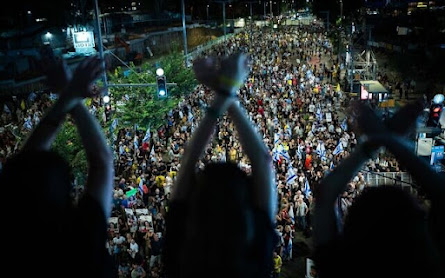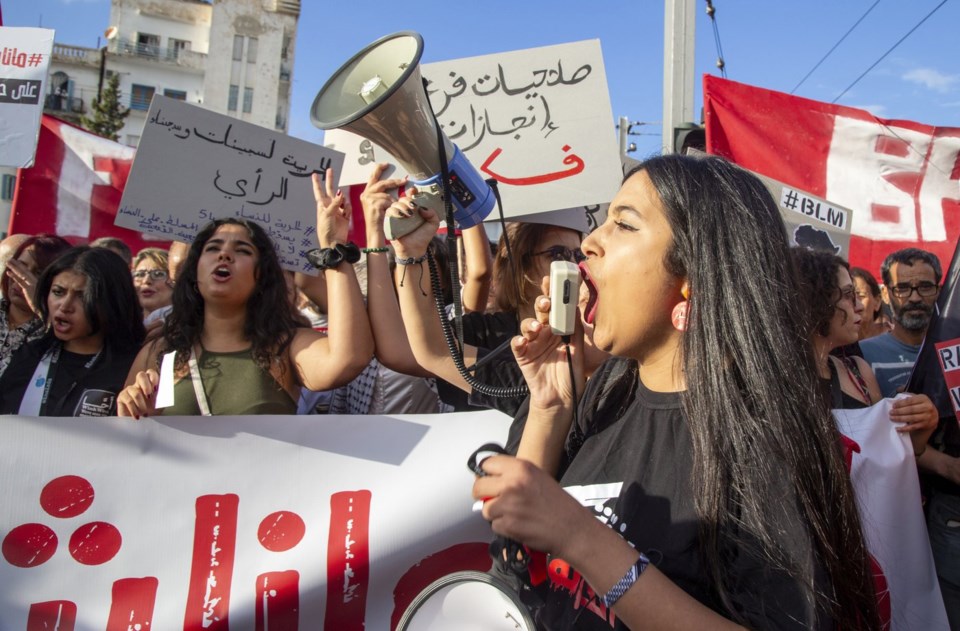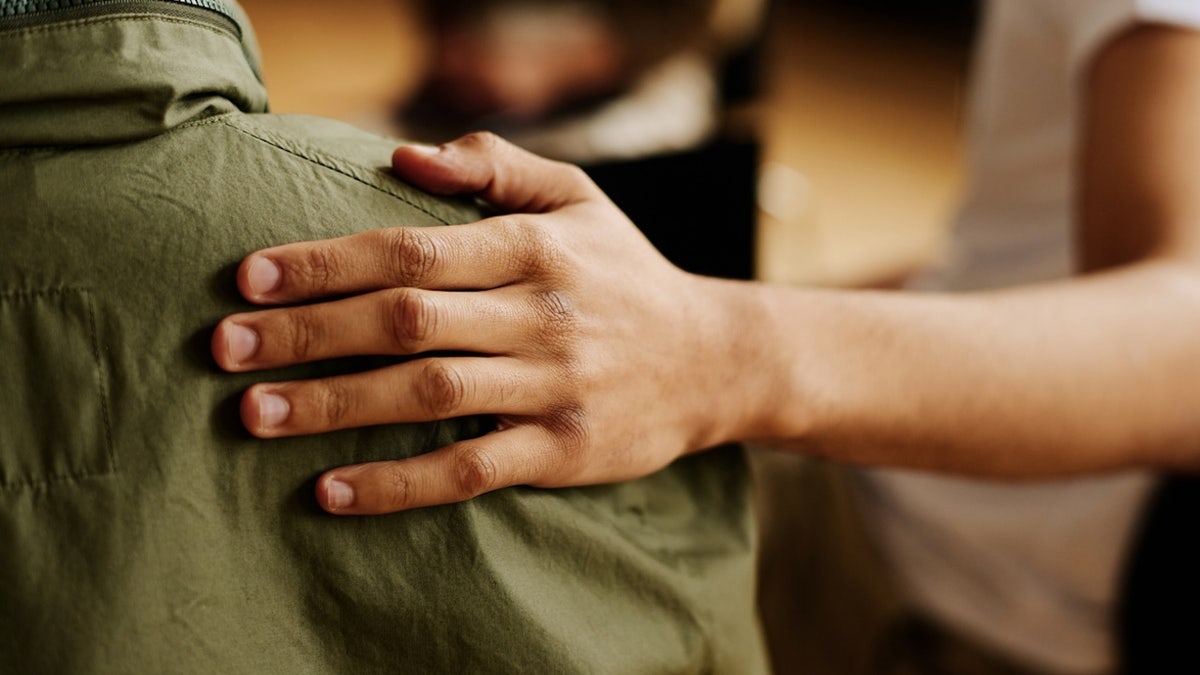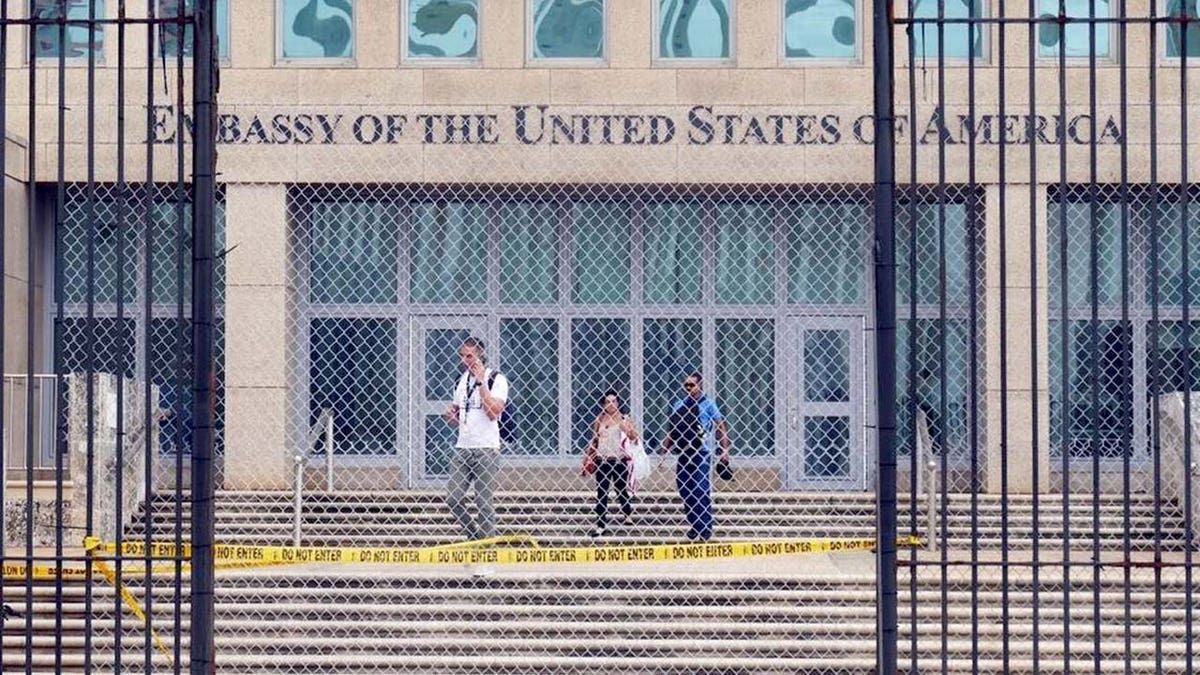Family of executed hostage authorizes release of final video from Hamas captivity
Alex Lobanov describes difficult conditions in which he was held by terror group, tells relatives he loves them; hostage families forum says video ‘demonstrates Hamas’s cruelty’
The family of slain hostage Alex Lobanov authorized on Friday the publication of parts of the final video of him recorded by Hamas, giving a glimpse into the dire conditions he endured before being murdered by the terror group.
Alongside Lobanov, hostages Hersh Goldberg-Polin, Eden Yerushalmi, Ori Danino, Carmel Gat, and Almog Sarusi were executed in a Rafah-based tunnel by their captors on August 29, before being discovered by troops on August 31.
In the days following the discovery of their bodies, Hamas released several propaganda videos of the hostages. Israeli authorities and human rights groups, and several freed hostages, have said that hostages are coerced into making their remarks in such videos. Israeli media outlets generally publish them only if their families request that they do so.
In the 90-second, heavily edited video, Lobanov said the hostages are being held “in very very difficult circumstances. There are no basic supplies, like water, food, electricity and hygiene.”
“There are bombings all the time, we are afraid and have difficulty sleeping,” he said, adding that Hamas has moved him from hideout to hideout ten times during his time in captivity.
Appealing to Prime Minister Benjamin Netanyahu and the government, Lobanov said they failed the people on October 7 and have failed the hostages since “in all efforts to release us alive.”
He accused the government of trying to kill them so they would not have to make a deal.
He called on the Israeli public to help his pregnant wife and two-year-old child make their voices heard. “Go out to the streets, protest, do everything so that we will come out of here alive.”
“I would just like to remind you that in [the 2011 deal to release IDF soldier Gilad Shalit], over 1,000 terrorists were released,” he said.
The clip ends with Lobanov saying: “To my family, Michal, Tom, Mom, Dad — Remain strong and united, I am doing well, miss you and love you.”
Following the release of the video, the Hostages Families Forum said Lobanov’s final plea only makes it more urgent to bring the rest of the captives home.
“This horrific video further demonstrates Hamas’s cruelty. Alex and five other hostages managed to survive in nightmarish conditions for over 10 months before being brutally executed. Recently released footage from their underground prison offered only a glimpse of the unimaginable horrors they endured in captivity. Time is running out for the remaining 101 hostages. A deal must be struck immediately to save them,” the Forum said.
Hamas has already released footage of Goldberg-Polin, Yerushalmi and Gat giving coerced testimony, which their families agreed to have published.

On Tuesday, the IDF published footage of the tunnel where the six hostages’ bodies were found.
Additionally, the IDF released new details on the tunnel and the operation to find the bodies of the six murdered Israelis, including that they were being held only some 700 meters away from where another hostage was rescued alive days earlier.
The tunnel where their bodies were found is a narrow 120-meter-long passageway — not tall enough to stand in without bending over — that connected parts of a large underground network in the Tel Sultan neighborhood, which according to the IDF belonged to Hamas’s Rafah Brigade.
The tunnel network was one of the largest underground complexes found by the army in Gaza to date, military sources said.
Lobanov was kidnapped on October 7 while working at the Supernova Festival where terrorists killed some 360 people and kidnapped about 40. In total, the October 7 massacre saw terrorists kill some 1,200 people, mostly civilians, and kidnap 251.
It is believed that 97 of the hostages abducted by Hamas on October 7 remain in Gaza, including the bodies of at least 33 confirmed dead by the IDF.

Hamas released 105 civilians during a weeklong truce in late November, and four hostages were released before that. Eight hostages have been rescued by troops alive, and the bodies of 37 hostages have also been recovered, including three mistakenly killed by the military as they tried to escape their captors.
Hamas is also holding two Israeli civilians who entered the Strip in 2014 and 2015, as well as the bodies of two IDF soldiers who were killed in 2014.
Emanuel Fabian contributed to this report.













